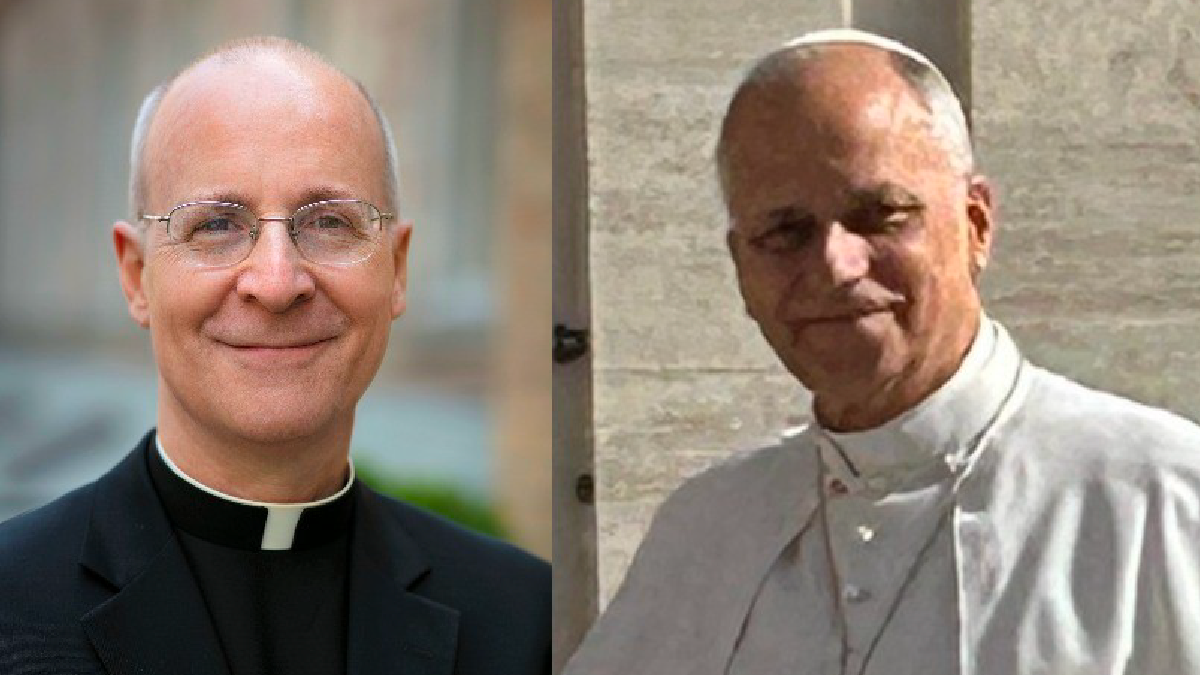Pope Leo XIV met privately with Jesuit Father James Martin on September 1, in a half-hour audience inside the library of the Apostolic Palace. The meeting marked one of the first significant signals from the new pontiff regarding his pastoral approach to LGBTQ+ Catholics.
Father Martin, a Jesuit priest known internationally for his LGBTQ+ ministry and founder of the Outreach initiative, described the encounter as both “very consoling and very encouraging” to the Associated Press. He added that the time with Pope Leo was “frankly a lot of fun,” underscoring the relaxed and open tone of the conversation.
“The message I heard from Pope Leo is the same message I heard from Pope Francis, which is the desire to welcome all people, including LGBTQ people,” Martin said. He noted in a social media post that Pope Leo was serene, joyful, and encouraging, urging him to continue his ministry of inclusion.
The significance of this meeting lies not only in its content but also in its symbolism. Pope Francis, who led the Church from 2013 until his death earlier this year, consistently emphasized a pastoral style marked by welcome and compassion, even as doctrine remained unchanged. His famous “Who am I to judge?” remark and the Vatican’s approval of blessings for same-sex couples defined his papacy’s tone toward LGBTQ+ Catholics. The audience with Pope Leo suggested that this spirit of welcome will remain a visible part of papal ministry moving forward.
Pope Leo XIV, who previously held a reputation for more conservative theological views, appears intent on continuing that spirit of inclusion. By granting a publicized audience to Father Martin and endorsing his ministry of outreach, the pope sent a message of continuity to LGBTQ+ Catholics worldwide. The meeting also signaled that conversations about LGBTQ+ people are not relegated to the margins of Church life but acknowledged at the highest levels of leadership.
In an essay for Outreach, Martin reflected that Pope Leo emphasized the importance of “synodality,” a guiding framework for the Church’s future that was central to Pope Francis’s vision. At its heart, synodality calls the Church to listen to people from all walks of life, including those on the margins like LGBTQ+ Catholics, so that it can become, in Martin’s words, “more open, more listening, more welcoming and more inclusive.” He said the pope’s encouragement was both hopeful and practical, tying LGBTQ+ ministry to the Church’s broader commitment to dialogue and inclusion.
As Pope Leo begins his pontificate, the meeting with Martin offers early insight into the direction of his leadership. While global issues of peace and reconciliation remain at the forefront of his agenda, including conflicts in Ukraine, Gaza, and Myanmar, his decision to affirm ministries of welcome shows that LGBTQ+ concerns are not absent from his attention. The timing of the meeting, coinciding with a Holy Year pilgrimage of LGBTQ+ Catholics, underscored that point. For many, it offered reassurance that Pope Leo’s leadership will continue to build bridges and affirm the presence of LGBTQ+ people within the life of the Church.
